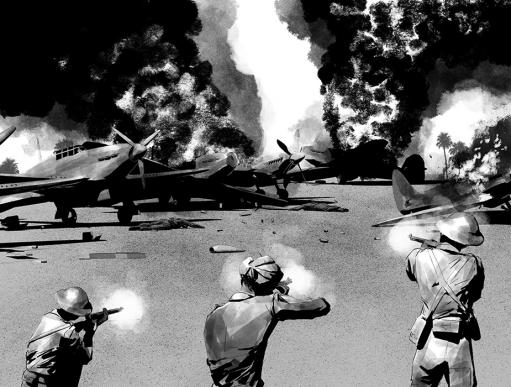Throwback Thursday Featuring, "Convoys" Issue 297.4

I love poems that have a strong narrative spine, and thank Robert Frost for inspiring that appreciation. Narrative is what holds “Convoys” together (NAR, Fall, 2012). Perhaps one would be hard pressed to see Frost’s influence in “Convoys”, but for me he was the model.
The winter I wrote the poem, I was rereading The Poetry of Robert Frost, the complete poems. What struck me most were the long narratives, like “Home Burial” and “In the Home Stretch”. I’d never before appreciated the human drama Frost captured in those long seemingly formless, musicless poems. Blame that on high school anthologies feeding us his short, formal, rhyme-schemed “hits”. But in that winter reading, I understood that Frost wed of poetry and elements of fiction to enlarge each poem’s possibilities and bring those rural characters to heart-wrenching life. And that in marriage, their voices and actions resonated with all the depth of Homer, Shakespeare, and Dante, who were very likely Frost’s models.
In “Convoys”, the first person narrator is one of three men on a pub crawl that we are invited to join. The story of reveling and darkness is enhanced by poetry’s measured sonic syntax and figurations. Before it concludes, the poem and its drinkers take a few surrealistic turns, two of which set us in one veteran’s combat flashbacks. But first, we meet our drinking companions, walking …
… along Bergen Street,
between the quiet lines
of its modest brownstones and curbed-trees,
explosive as three wobbly raccoons,
dazed and masked in garbage-eating, chin-greased
smiles, and stinkingly satisfied
with the thunderous dull roar
of our voices and … Leaning
into each other …
Perhaps the scene is familiar. Perhaps it reminds us of our own friends at a party. So when the poem suddenly leads us into deadly battles in Vietnam, we think “our drinking buddies” are/were brothers-in-arms and our fraternity makes us care more about them. This is especially so after watching a grenade roll …
… from the hand of Gutierrez, shot
before he could throw it, so it went
off in his lap.
or when we witness how one soldier
… crawling under Delaney’s corpse,
… made his pact with the rest
of his life alone …
After glimpsing the battles and the dead they carry, we have a deeper appreciation for these men, who seem so like our friends, we feel we have known them for longer than this one carouse. If we were to say, in today’s parlance, “Thank you for your service,” we’d know a bit about what that service involved.
In the final stanza (and yet another bar), the poem offers a toast to the fallen and surviving soldiers (our drinking pals), and suggests that life - or at least this night - must carry on and should include song and celebration.
… to the bottom of the glass,
to the convoy to tomorrow and the journey
down off that mountain forty years ago tonight;
… And have you rosin
and voice enough to go another song for this pint?
If “Convoys” is a successful mix of poetry and narrative, and I’ve earned it, may I ask, as does one of the characters in Frost’s “In the Home Stretch”:
Did they make something lonesome go through you?
Illustrations by; Clay Rodery. Clay Rodery is a painter and illustrator who lives and works in New York City.
Recommended
Nor’easter
Post-Op Appointment With My Father
Cedar Valley Youth Poet Laureate | Fall 2024 Workshop






